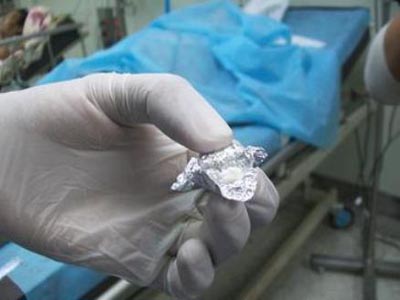A Bio-sensor to Detect Drugs!
By
siliconindia | Monday, 04 June 2012, 03:18 Hrs

Sydney: Scientists have developed a new generation of bio-sensors that can spot microscopic traces of contaminants in less than an hour.
Known as a bio-chemiresistor, it meets a long-standing challenge to create a sensor that is not only super-sensitive to the presence of chemical compounds, but responds quickly.
It has countless potential uses for detecting drugs, toxins and pesticides for biomedical or environmental analysis, the journal, Angewandte Chemie, reported.
"Enrofloxacin is an antibiotic used in the agricultural industry that can be transferred to the food chain," noted study co-author Justin Gooding, Chemistry Professor at the University of New South Wales.
"Our bio-chemiresistor was able to detect enrofloxacin in neat milk in 40 minutes, at level as low as one nanogram in a litre of milk. To put that number in perspective, a nanogram is a billionth of a gram and is the mass of a single cell.
"While that is impressive enough, the sensor is a general concept that can be widely applied across many different fields," Gooding added, according to a university statement.
A bio-sensor is a portable analytical device that uses biological molecules to detect selectively just one compound within a mix of many others.
Small bio-sensors are already in daily use testing the safety of drinking water, for checking diabetic blood-sugar levels and for pregnancy tests.
Source: IANS
